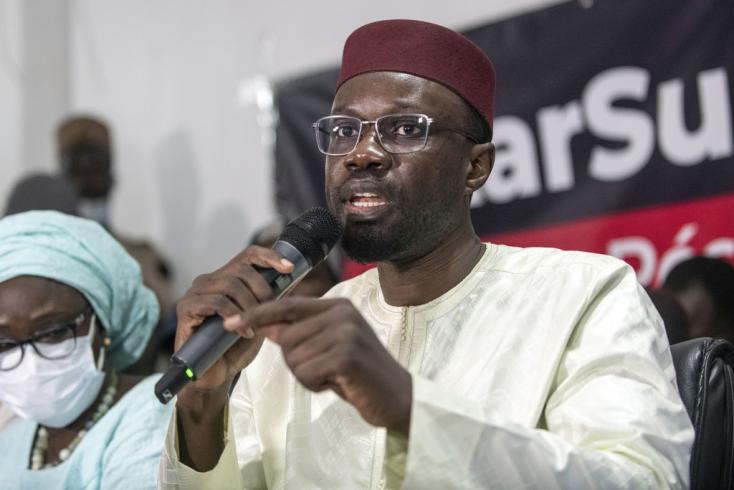
Senegalese Prime Minister Ousmane Sonko has come under fire following controversial remarks made during a meeting with Senegalese nationals in Beijing.
The comments, delivered on the sidelines of the Davos Summer Forum, have drawn sharp criticism from political opponents who claim they signal a troubling shift in tone and intent from the influential opposition figure.
During the event, Sonko told attendees that “those who criticize me should keep their distance,” further asserting that only divine will had prevented him from becoming president. Broadcast live and widely shared on social media, the statements have been interpreted by many as veiled threats against dissenters and a potential warning to political opponents.
The Front for the Defense of Democracy and the Republic (FDR), a coalition representing several opposition parties, responded swiftly. In a press conference held on Friday, July 4, 2025, FDR leaders condemned Sonko’s words as “a serious threat” and “dangerous,” accusing him of promoting an authoritarian mindset incompatible with democratic values.
“These remarks cannot be dismissed as mere slips of the tongue,” FDR representatives stated. “They reflect a vision of governance that undermines freedom of expression and the democratic space in Senegal.”
The controversy unfolds amid an already tense political atmosphere. Senegal has been experiencing increased polarization, with opposition leaders facing mounting legal challenges and allegations of government overreach in both political and economic spheres. Critics argue that Sonko’s comments reveal a desire to stifle dissent and impose a rigid approach to political leadership.
FDR also warned of the rise of “populist” tactics, cautioning that Senegal’s democratic principles must not be sacrificed for the sake of political rhetoric. “We believe in dialogue, in presenting reasoned proposals—not in media noise or incitement,” they said.
While Sonko remains a dominant and polarizing force in Senegalese politics, the backlash over his Beijing speech underscores broader concerns about the country’s democratic direction. As Senegal grapples with internal divisions, the incident has reignited debate over the balance between leadership, accountability, and the preservation of civil liberties in a fragile political climate.



